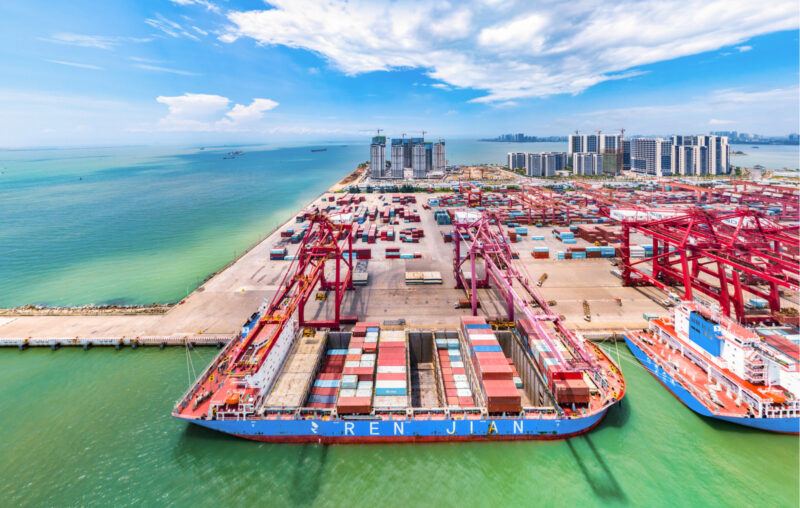Twelve Principles of International Trade: Part 1

Pundits, politicians, and the general public, even in the most calm and enlightened times, understand international trade only poorly. In times of economic and social tumult, this understanding worsens from poor to preposterous. Because such tumult has seldom been greater than it is now, expect to encounter, from all quarters, assertions about trade that are as unmoored from sound economic thinking as they are from factual reality.
Fortunately, unlike Donald Trump – who for decades has been obsessed with obstructing Americans’ freedom to trade – President-elect Biden likely is more of a mainstream Democrat on trade. Of course, compared to students who earn grades higher than D in Econ 101, on matters of trade mainstream Democrats are fountains of fallacies. But compared to President Trump and his trade advisors – each of whom is an F student on trade – typical mainstream Democrats these days are D students. So at least on the trade front, we might cautiously hope for modestly improved trade policy under the Biden administration. D is a grade higher than F.
And so to assist the incoming administration, I will offer – in the course of the next few weeks – a handy list of twelve principles of trade. Here are the first three.
1. Countries do not trade with each other. People trade with each other.
If no one bats an eye when your neighbor in Nashville trades in the 2011 Chevy that he bought ten years ago in order to buy a 2021 Ford today, why should anyone bat an eye if your neighbor today buys instead a 2021 Toyota? In both cases your neighbor acts to get the most value for his money; in both cases a seller voluntarily satisfies your neighbor’s demand. And in both cases the trade is carried out by individuals. There’s no special involvement of governments or any collective. Your neighbor buys, and the auto-dealership’s owner (using a salesperson as an agent) sells.
That the Toyota vehicle is assembled in Japan, while the Ford vehicle is assembled in Michigan, is irrelevant. No one who observes the single transaction through which your neighbor purchases an automobile from Toyota would describe the exchange as “America trading with Japan.”
Your neighbor, of course, isn’t the only American to buy an automobile from a foreign manufacturer. Each day, many Americans do so. Likewise, many Americans daily buy other kinds of goods and services from foreign suppliers, just as many foreigners daily buy a wide variety of goods and services from American suppliers. Yet each such exchange is its own event, conducted voluntarily by flesh-and-blood buyers and sellers. These exchanges differ in no essential respects from your neighbor buying a vehicle from Toyota. If in none of these individual exchanges there is any evidence of “America” trading with “Japan,” summing these exchanges together does not result in “America” trading with “Japan.”
It’s just people trading with people. Period.
2. Imports do not destroy jobs on net in the domestic economy.
One common reaction to principle number 1 goes like this: When consumers shift their spending among different domestic producers – say, in America from G.M. to Ford – there is no net job loss in the domestic economy, but when consumers import more – as when Americans buy more automobiles from Japan – the domestic economy suffers net job losses.
This objection is the most common fallacy about international trade. Those who offer it see only the jobs lost in those industries that compete with imports. These economically myopic people do not see that foreigners export to us only because they wish to import from us. And this wish by foreigners helps to ensure that increased trade has no net effect on the number of jobs in the domestic economy.
Foreigners can import from us each period – say, each month – as much as possible. In such a case, if we Americans this month increase our imports by $1 billion, foreigners would this month spend every cent of this $1 billion buying additional American exports. The result is that the jobs created in the U.S. by the rise in America’s exports offset the jobs lost in the U.S. by the rise in America’s imports. (There are several secondary effects, such as the additional spending Americans are able to do because they acquire imports at lower prices than would be paid for similar American-made goods. But I here ignore these effects, not least because consideration of each would only further seal the deal in favor of a policy of unilateral free trade.)
Fortunately for us Americans, foreigners generally don’t wish to immediately import from us as much as they possibly could. The reason is that foreigners find America to be an attractive place to invest. But to invest in America requires American dollars. Therefore, foreigners who wish to invest in America must refrain from spending all of their dollars buying American exports.
Dollars that foreigners don’t spend on American exports are invested in America. As is true of Americans who invest in America, foreigners invest here only because they anticipate that doing so will increase their future ability to consume American-supplied goods and services. The Singaporean who buys stock in Apple and the Canadian who opens a restaurant in Detroit hope to earn more dollars over time so that, in the future, they or their heirs will have even more dollars to spend on goods and services sold by American companies.
And these investments in America by foreigners, no less than investments in America by Americans, create in America not only particular jobs, but also more innovation and more and better capital goods and infrastructure. Americans and non-Americans alike are enriched.
3. Trade deficits are generally evidence of relative economic health.
When foreigners increase their investments in America the result is an increase in America’s so-called “trade deficit.” (Were America to have a so-called “trade surplus,” the result would be a decrease in this trade surplus. But the U.S. hasn’t run an annual trade surplus since the mid-1970s.) Rising American trade deficits are popularly believed to be evidence of poor performance – sometimes described as “uncompetitiveness” – of the American economy.
But only a bit of thought exposes this popular belief’s absurdity. Because America would run no trade deficit if global investors weren’t keen on investing their funds in America – and because global investors would not be keen on investing their funds in America if the economy here were believed to be weak and in decline – the very fact that so many global investors consistently choose to invest their funds here is strong evidence that these investors regard the American economy to be strong and promising.
If you doubt this conclusion, simply ask yourself if you’d voluntarily invest in a company that you think is destined to perform poorly. Of course your answer is no. And you’d give this answer whether you expect the firm to perform poorly because of its own internal mismanagement or because the jurisdiction in which the firm is located prevents it from performing well.
Although it’s possible to imagine bizarre scenarios in which a country’s rising trade deficits might be evidence of economic decline, none of these scenarios is realistic in the case of the United States. American trade deficits are evidence of American economic health, at least relative to many other countries, rather than of economic hardship.
That this truth is widely unknown does nothing to make it less true or to diminish its significance.
Read Twelve Principles of International Trade: Part 2









